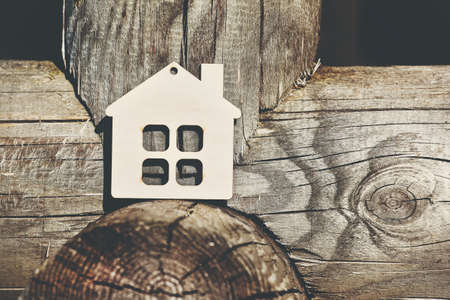Introduction to Vastu Shastra in Indian Real Estate
Vastu Shastra, the ancient Indian science of architecture, plays a pivotal role in the countrys real estate sector. Rooted deeply in Indian tradition and culture, Vastu is believed to harness cosmic energies and align them with human dwellings for prosperity, harmony, and well-being. In the context of property buying, especially for residential and commercial spaces, adhering to Vastu principles is considered highly auspicious and often becomes a top priority for prospective buyers across India. Whether you are investing in a new flat in Mumbai, an independent house in Bengaluru, or a commercial space in Delhi, understanding the basics of Vastu can significantly impact your investment’s long-term value and success. The principles focus on proper placement, direction, and spatial arrangement to attract positive energy—making it a key consideration for those looking to secure both financial stability and spiritual peace through their real estate choices. As the demand for Vastu-compliant properties continues to rise in the Indian market, knowing what to look for from a Vastu perspective before making a purchase decision has never been more crucial.
2. Site Selection and Plot Orientation as per Vastu
When investing in real estate in India, the selection of the site and its orientation play a pivotal role in attracting prosperity, harmony, and positive energy, as per Vastu Shastra. Indian buyers should pay close attention to these foundational aspects before finalizing any property deal.
Key Vastu Guidelines for Selecting a Plot
The following factors are considered highly auspicious by Vastu experts and are widely respected in the Indian real estate landscape:
Direction of the Plot
| Direction | Vastu Recommendation | Significance for Buyers |
|---|---|---|
| North-East (Ishan) | Most Auspicious | Brings wealth, health, and peace; ideal for residential and commercial plots |
| East (Purva) | Auspicious | Encourages growth, new beginnings, and sunlight; suitable for homes and offices |
| North (Uttara) | Auspicious | Supports career growth and prosperity; favored for business premises |
| South-West (Nairutya) | Less Preferred | May cause instability if not balanced properly; requires careful planning |
| South or West | Generally Avoided | Might restrict opportunities and financial growth; not recommended unless corrected by remedies |
Shape of the Plot
| Shape Type | Vastu Opinion | Cultural Belief in India |
|---|---|---|
| Square or Rectangular | Highly Favorable | Blesses the occupants with stability, balance, and progress; most sought after in Indian culture |
| L-shaped or Irregular Shapes | Avoided/Remedied | Might invite financial or health-related issues; considered inauspicious by traditional families |
| Extended North-East Corner (Gaumukhi) | Auspicious for Residences | Said to attract divine blessings and prosperity |
| Extended South-West Corner (Shermukhi) | Avoided for Homes, Used Sometimes for Business | Might result in losses or disputes at home; sometimes beneficial for commercial use if handled by an expert |
Surrounding Environment Considerations
- Water Bodies: Plots with water sources like wells or ponds on the North-East are highly auspicious. However, avoid those with water bodies in the South-West.
- Main Road: Prefer plots with roads on the East or North side. Avoid T-junctions facing South or West as they may bring negative energies.
- Trees & Electric Poles: Large trees should not be immediately in front of the main entrance. Similarly, avoid plots with high-tension electric wires overhead.
Culturally Relevant Tip for Indian Real Estate Buyers:
It is customary in many parts of India to consult a local Vastu consultant or family astrologer before sealing a property deal. This ensures that both modern investment sense and age-old traditions come together to secure long-term financial well-being and happiness for your family.

3. Building Layout and Room Placement Vastu Tips
When buying property in India, paying attention to the building layout and correct placement of rooms as per Vastu Shastra is a must for attracting wealth, peace, and prosperity.
Kitchen Placement for Positive Energy
The kitchen should ideally be located in the South-East corner (Agni Kon) of the house, which is ruled by the fire element. According to traditional Indian beliefs, this direction enhances health and financial flow. Ensure that the person cooking faces East, inviting positive energy into daily meals.
Master Bedroom: The Zone of Authority
The master bedroom must be situated in the South-West corner, known for stability and leadership in Vastu. This not only strengthens relationships among family members but also brings authority and respect to the head of the household. Avoid placing the master bedroom in the North-East as it can lead to health and financial issues.
Puja Room: Spiritual Harmony
The Puja or prayer room holds immense significance in Indian homes. It should be placed in the North-East (Ishaan Kon), which is considered highly auspicious for spiritual growth and divine blessings. Avoid building toilets near this space to maintain purity and sanctity.
Additional Tips for Other Rooms
Living rooms work best in the North or East directions, promoting social harmony and family bonding. Children’s rooms are favourable in the West or North-West corners for creativity and academic success. Bathrooms should be located in the West or North-West to channel waste energy away from living spaces.
Key Takeaway
Always consult a local Vastu expert before finalising your property purchase. Even minor changes in room allocation can lead to major improvements in happiness, prosperity, and overall well-being according to Indian Vastu principles.
4. Evaluating Entrance and Main Door Vastu
The main entrance is considered the ‘face’ of any property in Indian culture, believed to be the primary gateway for energy flow. According to Vastu Shastra, the placement and design of the entrance door can significantly influence the prosperity, health, and harmony of the residents. Before finalizing a real estate purchase in India, evaluating the main door’s Vastu alignment is crucial for inviting Lakshmi (the goddess of wealth) and ensuring positive vibrations throughout your space.
Main Entrance Placement: Directional Considerations
Vastu recommends specific directions for placing the main entrance to maximize auspiciousness. The northeast, east, or north-facing entrances are generally preferred as they are associated with growth, prosperity, and new opportunities. Entrances in the south-west or south direction should be avoided unless remedial measures are applied.
| Entrance Direction | Vastu Impact | Remarks |
|---|---|---|
| North-East (Ishan) | Highly auspicious; attracts prosperity & peace | Ideal for homes & offices |
| East | Brings progress, vitality, and social connections | Preferred for new ventures |
| North | Attracts wealth & opportunities | Favorable for business properties |
| South/West/South-West | Might bring obstacles or financial strain if not corrected | Avoid or apply Vastu remedies |
Main Door Design: Indian Customary Elements
The main door should be larger and more prominent than other doors in the property. It is advisable to use high-quality wood like teak or sal for durability and tradition. Avoid doors that creak or have visible cracks. Indian customs also encourage decorating the entrance with auspicious symbols like Om, Swastika, or Lakshmi feet to invoke blessings. Placing a threshold (marble or wood strip at the base) is another time-honoured practice to prevent negative energies from entering.
Auspicious Features for Main Door:
- Main door must open inwards and clockwise for welcoming positive energy.
- Avoid bathrooms or toilets directly opposite the entrance.
- Keep the area well-lit and clutter-free; place potted tulsi or money plants near the doorway.
- No shoe racks or dustbins immediately outside or inside the main entrance.
- If possible, ensure there is no staircase facing the main door directly.
Indian Wisdom Tip:
On festivals like Diwali or Gudi Padwa, adorn your entrance with fresh rangoli designs and torans made of mango leaves to further enhance luck and positivity—an essential part of Indian real estate vastu practices.
5. Vastu-Friendly Amenities & Local Cultural Influences
Understanding the Importance of Vastu-Compliant Amenities
When evaluating a property in India, it is crucial to look beyond the structure and consider the amenities provided within the development. Key features such as water bodies, gardens, open spaces, and recreational zones play a significant role not only in enhancing lifestyle but also in harmonizing energies as per Vastu Shastra principles. For instance, water features like ponds or fountains placed in the north-east direction are believed to attract prosperity and positive energy. Similarly, well-maintained gardens located towards the east or north are thought to ensure vitality and growth for all residents.
Blending Modern Living with Indian Traditions
Integrating Vastu with Indian cultural practices amplifies both spiritual and material benefits. Community temples, puja rooms, and spaces for traditional festivals within residential complexes reflect deep-rooted cultural values while promoting collective harmony. Choosing properties that offer designated spaces for meditation, yoga, or religious rituals can help foster a balanced environment aligned with Indian customs. It is advisable to check whether these common amenities adhere to Vastu directions—for example, ensuring community halls or mandirs face east or north to maximize auspiciousness.
Practical Tips for Homebuyers
Before finalizing your property purchase, inspect if the amenities resonate with both Vastu norms and local culture: verify orientation of clubhouses, childrens play areas, and parking facilities; confirm availability of green spaces and their placement; observe whether water tanks and electrical panels are positioned as per Vastu guidelines (avoiding south-west for heavy structures). This thoughtful blend of traditional wisdom and contemporary convenience ensures not just material wealth but also lasting peace and happiness for you and your family.
6. Common Vastu Doshas & Remedies for Homebuyers
Understanding Vastu Doshas in Indian Properties
In the dynamic Indian real estate market, even promising properties may sometimes have Vastu doshas (defects) that could impact prosperity, peace, and well-being. Recognizing these doshas before purchase is crucial to avoid obstacles to financial growth and family harmony. Typical doshas found in Indian homes include incorrect entrance placement, kitchen and toilet misalignment, or lack of natural light.
Practical Ways to Identify Common Vastu Doshas
- Main Entrance: Avoid properties with main doors facing the south-west or directly aligned with another exit. The north-east is considered most auspicious.
- Kitchen Placement: A kitchen located in the north-east brings negative energy; ideally, it should be in the south-east corner.
- Toilet Direction: Toilets in the north-east or centre of the home are believed to create financial blockages.
- Pooja Room: The prayer area should never be directly above or below a toilet or kitchen.
Simple Indian Remedies Before Finalising Your Purchase
- Yantras & Symbols: Place Vastu yantras or sacred symbols like Swastika or Om at entrances to counteract minor doshas.
- Salt Remedy: Keep a bowl of sea salt in affected corners to absorb negative energies—a popular and cost-effective Indian solution.
- Pyramid Energy: Install copper or crystal pyramids in problematic zones to neutralise energy flow imbalances.
- Lemon & Green Plants: Placing lemons or tulsi plants near entryways helps purify the aura and attract positive vibrations.
Consulting a Local Vastu Expert
If you detect multiple Vastu doshas, consult an experienced local Vastu consultant. Many reputed builders in India now offer pre-approved Vastu-compliant flats—always check their credentials and reviews for authenticity. Remember, applying these practical remedies can safeguard your investment and ensure your new property becomes a source of abundance and happiness.
7. Conclusion: Making Informed, Vastu-Compliant Investments
Recap of Essential Vastu Checklist for Buyers
Investing in real estate is a significant milestone, and ensuring that your chosen property aligns with Vastu Shastra can greatly influence your financial growth, peace, and overall prosperity. Here’s a quick recap of the vital checklist for buyers who aspire to invest in Vastu-compliant properties:
- Entrance Direction: Prefer east or north-facing entrances to invite positive energy and Lakshmi into your home.
- Plot Shape: Opt for regular-shaped plots such as square or rectangular, which are considered auspicious and stable according to Indian tradition.
- Room Placement: Ensure kitchen is in the southeast, master bedroom in the southwest, and puja room in the northeast for enhanced spiritual and material well-being.
- Water Sources: Borewells, wells, or water tanks should ideally be located towards the northeast to promote health and abundance.
- Clutter-Free Spaces: Avoid properties with cluttered corners or obstructive structures at the main entrance as these block positive vibrations.
Ensuring Long-Term Prosperity: Next Steps
To secure long-term wealth and harmony, always conduct a thorough Vastu audit before finalizing any property deal. Consult with a qualified Vastu consultant familiar with local Indian customs and nuances. Document your observations and prioritize properties that tick most boxes on your Vastu checklist. Remember, investing in a Vastu-compliant space is more than following tradition—it is about fostering a vibrant environment that supports growth, family unity, and business success. With these principles as your guide, you can confidently make real estate decisions that attract Shubh Labh (auspicious profit) and enduring happiness for generations.

